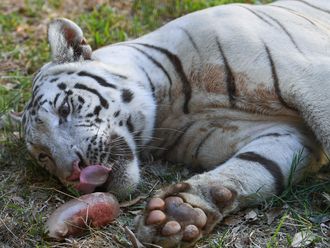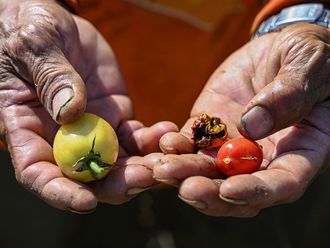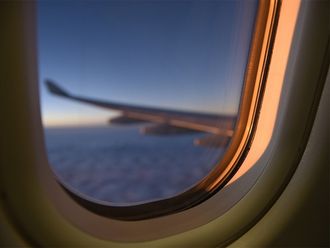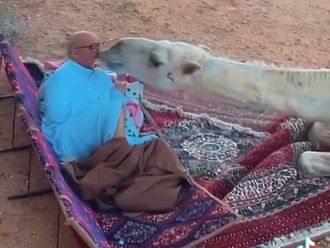Davao City: Many residents in southern Davao province have voiced support for Philippine President Rodrigo Duterte’s campaign against drug dealers and users, although some have challenged him to seek a more peaceful way of doing it.
Duterte is the former mayor of Davao City.
“I hope the president can put an end to the reign of drug lords in the Philippines. The [police] killings cannot be helped because drug syndicates are silencing those who are willing to talk,” Edsel Duran, a waiter of Secdea Resort on Samal island, told Gulf News.
“The growing number of people getting killed in the anti-drug campaign is saddening. But the president is effectively preventing Filipinos from being victimised by drug lords, drug pushers, and from total addiction,” Duran said, adding Duterte has opted for the “lesser evil” to save the Philippines from a deeper drug menace, while effectively saving future generations of Filipinos from drug abuse.
“I wish him good health. He must continue his campaign for all of us to be drug-free,” said Ralph de los Santos, a waiter at Secdea Resort.
“We ensure that our resort is drug-free,” said de los Santos,
“Many people involved in illegal drug trade are dying because of their own wrongdoings. I won’t cry for them,” said Joel Maguinay, head of Seadec Resort’s ground management.
“I can foresee more killings. More local drug lords are being cornered and they are responding with impunity — to the disadvantage of the government and the police. We have yet to unearth the bottom of the drug menace in the Philippines,“ Michael Dalumpines, chairman and CEO of government-owned Presidential Communications Operations Office (APO) said in Davao City.
Noting that other entities are involved in the killings related to the government’s campaign against illegal drug trade, finance secretary Carlos “Sonny” Dominguez said in Davao City, “The senate has spoken. A query report said there is no proof of government-sponsored extrajudicial killings in the campaign against illegal drug trade.”
“What is happening is collateral damage — others are involved in drug killings,” noted Dominguez.
“In time,” the true picture of politicians receiving drug lords’ protection money would soon been revealed by Duterte, said Dominguez. He did not give details.
But some Davao residents were not comfortable with Duterte’s anti-drug campaign which has killed 6,000 since July.
Police have admitted responsibility for 2,000 deaths, claiming drug syndicates are behind the rest of the fatalities.
“I really wish that President Duterte could find a magic formula to end the illegal drug menace without too much killing,” said Kenneth Guadalquiver, a grass sweeper at Seadec Resort
“It is challenging, but the president must find a better way to end the drug menace without too much blood in his hands. Those who believe in him want that to happen. Those who want him to fail want him to be criticised for what he is doing,” said Cristina Onate, businesswoman of Davao City.
“I wish that he can build a drug-free Philippines without too much blood in his hands,” said Hazel Villarojo, of Seadec Resort’s food and beverage section.
Local and international rights groups, the United Nations, and outgoing United States President Barack Obama have criticised Dueterte’ campaign against illegal drug trade.
Groups affiliated with the Liberal Party of former President Benigno Aquino have been involved in a campaign against alleged extrajudicial killings related to Duterte’s campaign against illegal drug trade.
But leaders of Southeast Asian countries where Duterte has recently visited have agreed with his efforts, launched in July.
China has extended soft loans for the sale of firearms to the Philippines’ campaign against illegal drug trade. It has also extended assistance in the establishment of drug rehabilitation centres in the Philippines.
Some one million drug users have voluntarily enlisted themselves for monitoring by their respective local village heads nationwide. More than four million Filipinos are hooked to shabu. The illegal drug trade has reached $4.8 billion (Dh17.6 billion) dollars a year in 2013, records showed.












